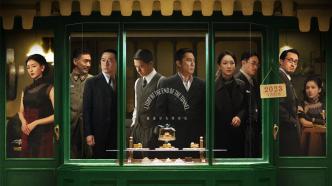
Cheng Er joined the "Strongest Spring Festival File" in 2023 with his new work "No Name". This work full of the director's personal style injects a unique art film color into the highly competitive Spring Festival market; and the film's grafting of spy war themes and suspense genres also responds to the author's consistent special attention to history and the discourse of the times .

"No Name" poster
The film author who made the "super commercial blockbuster"
Seven years ago, Cheng Er's "Romantic Disappearance History" was released nationwide. Although there were stars such as Ge You and Zhang Ziyi to help out, it only received 100 million yuan at the box office. "The History of Romantic Demise" adopts a non-linear narrative. The plot is like a broken puzzle, full of trivial details. It requires the audience to pick up the puzzle patiently, and it is not until the end of the film that the clues can be sorted out and a complete narrative can be built. In a restrained and alienated pace, the film uses fragmented and complicated clues to build a luxurious, cruel, violent and absurd epic. And this narrative method undoubtedly raised the threshold for viewing movies and hindered its market success. However, after several years of word-of-mouth fermentation, Cheng Er's author-director status and unique screen aesthetics have gradually gained recognition.
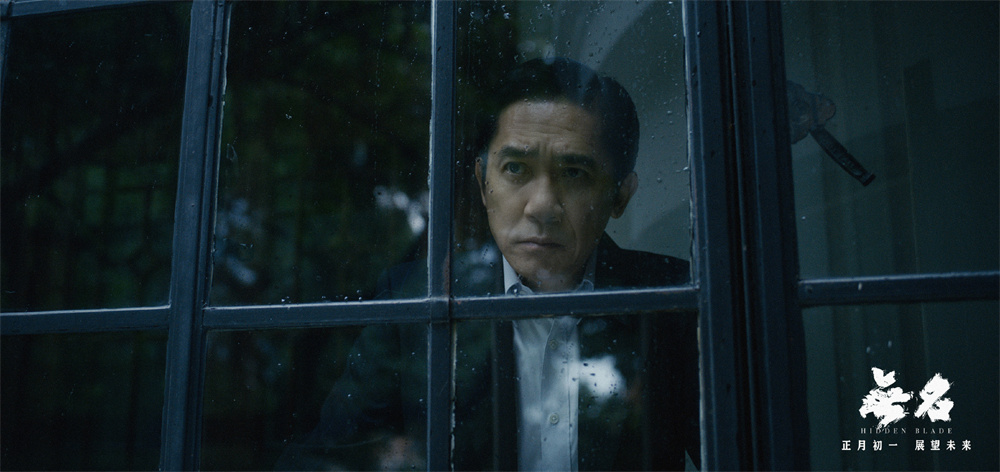
Stills of "No Name"
Compared with "Romantic Demise", "No Name" has a production cost of more than 300 million yuan, and the director has made no secret of his pursuit and confidence in market performance, not only daring to directly compete with several "first movies" in the Spring Festival, I also hope that the new work "No Name" will be "ready-to-drink"-it will get a box office return immediately.
In terms of publicity, the director jokingly used eye-catching and even dazzling "super commercial blockbusters" to define "Anonymous". It's easy to read. In the double trailer of the film, the scenes alternately show terrified and helpless crowds, soldiers with guns in a hurry, submachine guns shooting, bloody massacres in warehouses, fierce firefights, hand-to-hand combat... many action elements are displayed in a concentrated manner, all of which are intended to Highlight its market value. But in terms of creation, "No Name" is still a film full of the director's consistent pursuit of the author. "No Name" concentratedly shows the integration of the two governing forces of "author's expression" and "commercial pursuit".
"No Name" continues the narrative structure of the director's previous work, and the events that occurred in each time period in 1938, 1941, 1944 and 1945 are broken up and crossed in parallel. For example, at the beginning, there was a scene where Secretary Ye played by Wang Yibo and Captain Wang played by Wang Chuanjun had breakfast together, but as the plot developed, the audience was not told that this scene took place after the death of the Duke until the second half of the film; Huang Lei The traitor and his confession, the same scene appears twice: at the beginning of the film, this scene helps to shape Tony Leung's director Ho's ruthless camouflage image, and in the second half of the film, this scene occurs again , but became the key event of Director He's latent failure, and led to the final climax of the plot. In addition to the complex time clues of the author's style, there is also the suspenseful narrative requirement of the spy war theme, which makes the Japanese, the Kuomintang, the Wang puppet government, the Communist Party and other forces gather in the "isolated island" of Shanghai where the undercurrent is surging. , Wall Siders and Pretenders are all hidden in it.
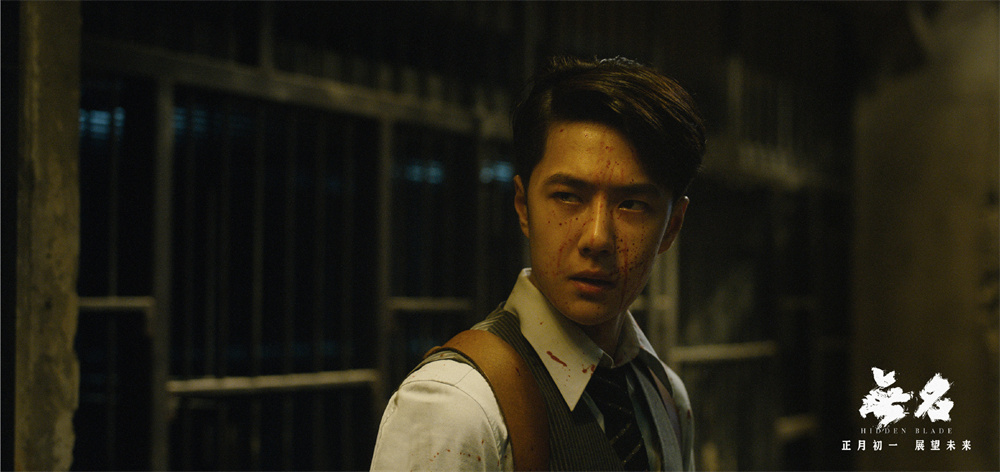
Stills of "No Name"
The non-linear narrative time and the character design full of camouflage make the first half of the film even more confusing. But this time, the reveal of the clues by the plot is not cryptic. As the director promised, the plot setting of "No Name" is clearer and simpler. In Cheng Er's own words, "it can be summed up in one sentence."
By the end of the film, the audience can basically touch the truth. In the film, three dialogues are constructed around the only "Mingfang" among the four forces-the Japanese military officer Dubu (played by Mori Hiroyuki), connecting the beginning and end of the story: the opening of the film Dubu is against Director He (played by Tony Leung) who is not used to Japanese food. ) expressed that "we should get used to it" and made no secret of his ambition to invade China; in the middle of the film, in the face of the Japanese army's gradually losing strategic advantage, Dubu still had firm illusions in the conversation with Minister Tang (played by Dapeng) and Director He Japan retains control over "Manchukuo"; at the end of the film, Dobe, who was defeated and surrendered, still has illusions in his mind, trying to escape punishment for war crimes, but is defeated by Secretary Ye who lurks until the last moment.
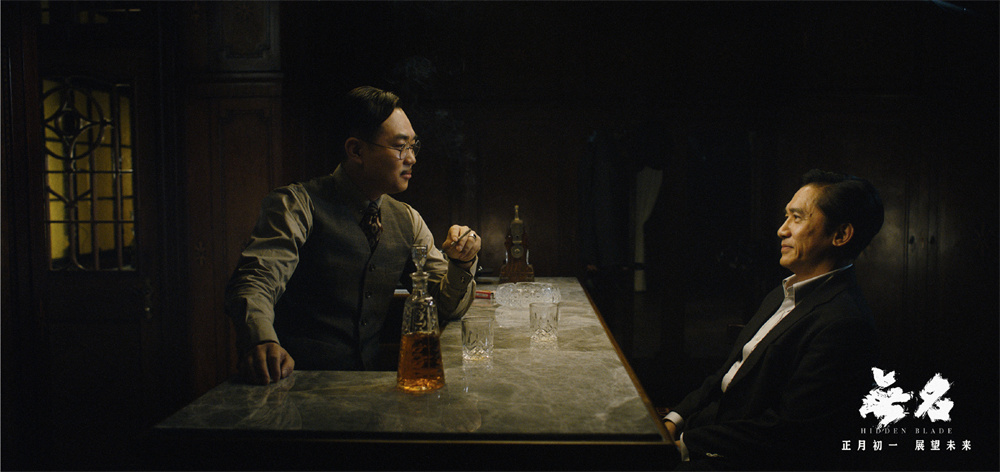
Stills of "No Name"
History stitched into images
In addition to the suspense and "brain-burning" forms of expression, the real charm of "No Name" is the historical discourse that connects this simple "main plot". The director traced the side of history with meticulous pen and ink and restrained attitude to the point, which left a lot of historical details in the film, and finally converged into the overall historical atmosphere unique to that chaotic era.
This is first reflected in the many imagery expressions in the film. At the beginning of the film, Guangzhou was bombed and occupied by the Japanese army in 1938. The camera does not directly show the people who were bombed and bombed by the Japanese army. Instead, it focuses on a lame puppy trembling in the ruins and hiding in the air-raid shelter. Take it easy. The lame dog ran into the rainstorm for food and died a miserable death. A few short shots show the cruelty of war and the helplessness and misery of the victims. The old Shanghai Drunken Shrimp appeared twice in the film, once at the home of Captain Wang, and once at the restaurant where Secretary Ye ate. The raw shrimp struggled desperately in the bloody wine, just like people in turbulent times.
In addition to using imagery as a metaphor for the current situation, the director also injects a lot of historical information into the film. They are not clearly explained, but are compressed into concise dialogues and picture details, which makes the audience think beyond narrative clues and identity puzzles. , there is another "task" to decompress the historical background information, which undoubtedly gives the film a deeper core of historical discourse under the shell of spy films and a sense of the times.
Rudubu said that he was not the "Tojo faction" but the "Ishihara faction" during dinner and chat with Director He. This sentence showed the two strategic concepts and positions of the Japanese military department at that time: the representative of the Tojo faction was Tojo Yingji is the main combat faction within the Japanese, arrogant and radical; Ishihara faction refers to the Japanese militarism faction represented by Ishihara Waner. Manchukuo used this as a springboard to plan a full-scale invasion of China. In this way, when we re-examine the "moderate" image of the Ishihara faction in the film, and even have a "retirement plan" to return to the countryside to work in agriculture (this is the case with Ishihara Waner in history), his appearance becomes even more sinister and cunning .
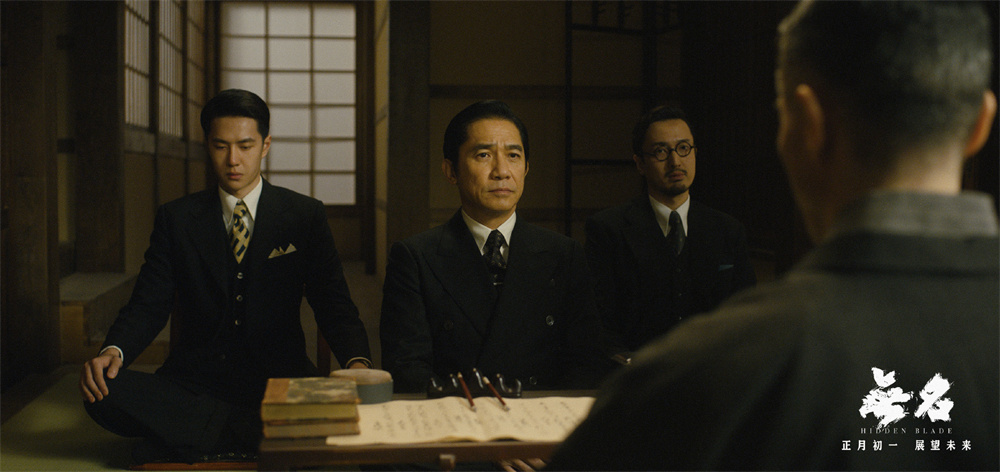
Stills of "No Name"
In addition, the state of various characters is depicted in the film. Even if there is not much ink, they all have clear postures. Among these characters, the group portraits of the entire era are condensed. The protagonists Secretary Ye and Director He are unknown soldiers who went deep into the enemy camp for the revolution, but they have different personalities, experiences and destinies are also different; Minister Tang (played by Dapeng) and Captain Wang are both traitors, but Minister Tang is a typical A fencer, observes the situation and moves among various forces to seek political interests. For Captain Wang, being a traitor is just a job. He has neither national sentiments nor political pursuits, so he has become the most "competent" eagle dog ; as an underground revolutionary, Mr. Ye's fiancée, Ms. Fang (played by Zhang Jingyi), desperately hunted down high-ranking Japanese military officials with her weak body, showing a noble spirit of sacrifice, while Mr. Zhang (played by Huang Lei) showed the weak side of human nature , describing the fragile soul of the apostate. These various characters have not only promoted the torrent of the times, but also been carried forward, and have become the epitome of the times and the footnotes of history.
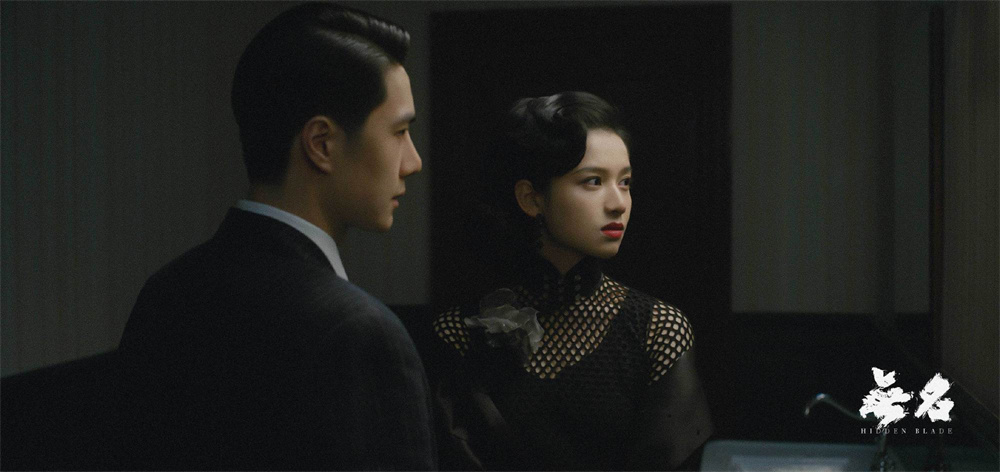
Stills of "No Name"
"No Name" builds an unusually vivid and three-dimensional image of the times with a high concentration of historical information and emotional fragments, which contains an image power that surpasses the "brain-burning" form and "cool film" narrative. As shown at the end of the film, in order to show the appearance of Hong Kong in 1946, Cheng Er reproduced the fragments of Ho Fan’s photographs recording the old Hong Kong’s appearance. The film stitches history into the image. Make the audience arrive at the scene of history perceptually.
(About the author: Zhao Yi, associate professor at the School of Film and Television Media, Shanghai Normal University; Zhu Fengyi, postgraduate student at the School of Film and Television Media, Shanghai Normal University.)


